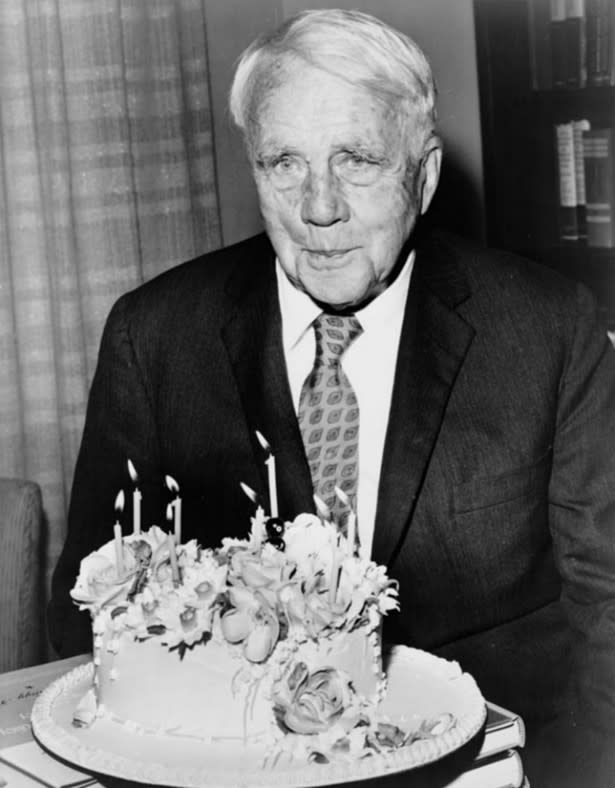The 'Quiet Passion and Spiritual Tenderness' of Robert Frost

The timeless American poet was born 142 years ago today. Frost was plainspoken, pastoral, coolly melancholy, and as easy to misread as he is to quote. He shares these attributes with A.E. Housman, an English poet also born on March 26. And they’re in good company: It’s also the birthday of Sandra Day O’Connor, Diana Ross, and Leonard Nimoy, among other illustrious folks. If any day’s events were to make me believe in astrology, it would be the birthdays of March 26.
But back to Frost. He was born in 1874 in San Francisco and suffered an unstable childhood and young adulthood marked by depression, frustration, and loss: the death of a father, the death of a child. As James Dickey writes in our November 1966 issue, he “settle[d] on poetry as a way of salvation” and pursued it “with a great deal of tenacity and courage but also with a sullen self-righteousness with which one can have but very little sympathy.”
Recommended: How Superhero Stories Reflect American Anxieties
In 1912, Frost submitted some of his early poems to The Atlantic, which rejected them. According to Peter Davison in our April 1996 issue, that “ambiguous snub rankled in Frost’s memory.” (You can read “Reluctance,” one of the rejected poems, here.)
In 1915, however, the English critic Edward Garnett came across Frost’s collection “North of Boston” and became convinced “that this poet was destined to take a permanent place in American literature.” In our August 1915 issue, Garnett praised Frost’s “quiet passion and spiritual tenderness”:
He is a master of his exacting medium, blank verse—a new master. The reader must pause and pause again before he can judge him, so unobtrusive and quiet are these effects, so subtle the appeal of the whole. One can, indeed, return to his poems again and again without exhausting their quiet imaginative spell. … The poet has known how to seize and present the mysterious force and essence of living nature.
Three of Frost’s best-known poems—“The Road Not Taken,” “Birches,” and “The Sound of Trees”—appeared for the first time alongside Garnett’s essay, and Frost’s American career (he had been living and working in England when he published his first two collections) took off soon after that.
But the Frost poem that feels most relevant to Atlantic readers today is “Mending Wall.”
Read more from The Atlantic:
This article was originally published on The Atlantic.

